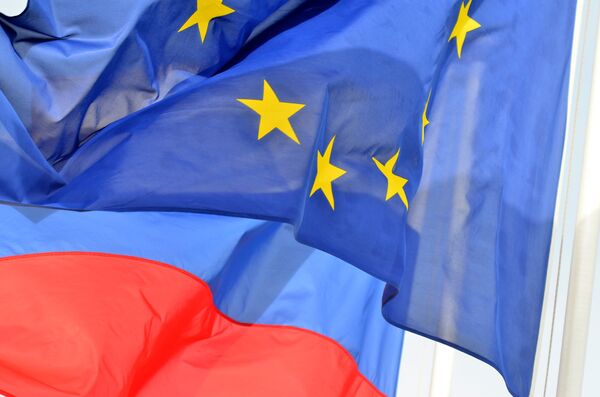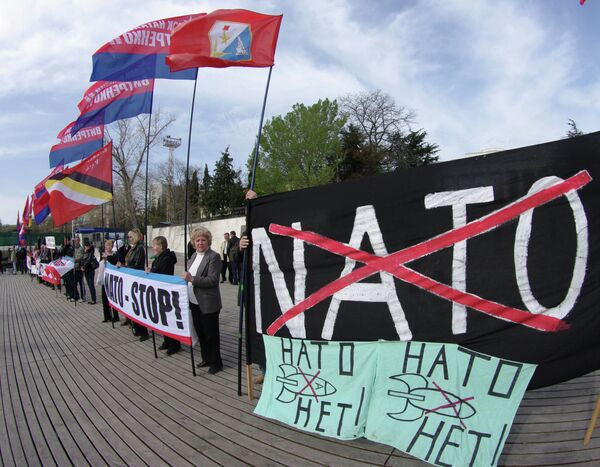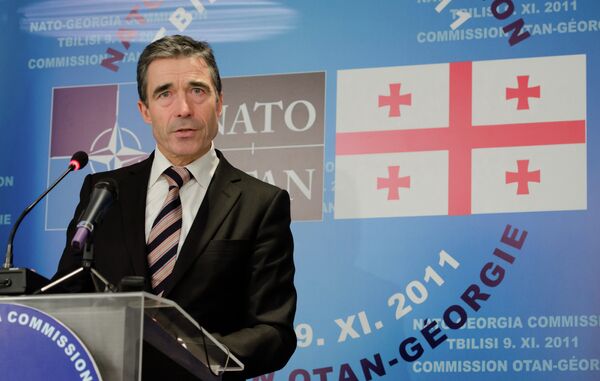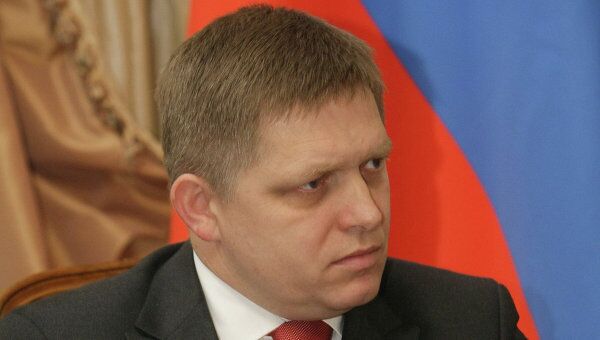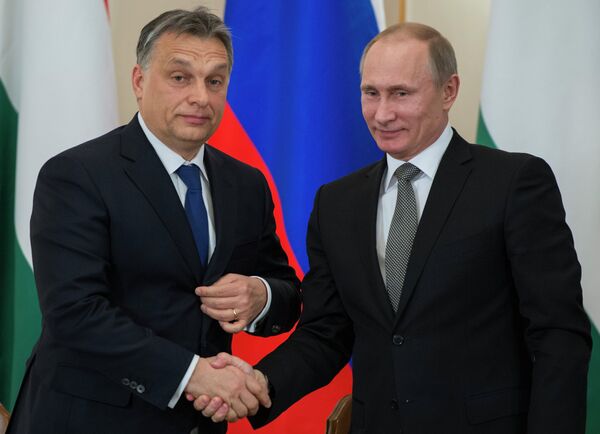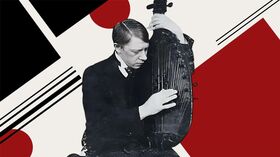This article provides an excellent description of Russia's relations with Eastern Europe. Forget the scare stories of the Neocons.
Russia is not about to attack or conquer Eastern Europe and East Europeans are not surrendering to Moscow. Russians and East Europeans want good relations with each other.
Vladimir Putin, the wily strategist of Russian revanchism, is well on his way to reconstructing the Warsaw Pact.
That, at least, is what the pundits of The Washington Post are making it out to seem. Last week, Jackson Diehl penned a column on how Putin has driven a wedge between NATO and its easternmost members. Anne Applebaum, meanwhile, pins the failure to maintain quiet on the eastern front on NATO itself and its decision not to establish bases in the region 10 years ago. The resulting crisis of confidence in what were once Soviet satellites, she laments, has undermined alliance cohesion.
These misreadings of what’s taking place on the eastern stretches of Europe contribute to an almost 1946-like sense of foreboding and inevitability. The small countries of Eastern Europe are bending to Moscow’s will, and the West is doing little more than appease the bear. Diehl and Applebaum stop short of declaring a new Iron Curtain and insisting that the region choose sides (over and above membership in NATO). But their all-or-nothing logic tends in that direction.
Contrary to these assertions, Poland, Slovakia, Hungary, and the rest of the region are not replaying 1946. Although these governments are pursuing very different strategies, they all know that a new Cold War would exact a terrible price on their countries. In most cases, they are quite sensibly trying to forestall this scenario. NATO’s imperative to push ever eastward, which pundits like Applebaum are urging it to do now under the cover of demonstrating resolve, will only make matters worse.
To understand why these pundits are wrong, first it’s important to understand how Russia and NATO arrived at this impasse.
After the Berlin Wall fell nearly 25 years ago, the new democratic governments in East-Central Europe couldn’t wait to leave the Warsaw Pact. Who could blame them: the Pact was a symbol of their subjection to the will of the Soviet Union. They showed a measure of caution, however, and didn’t disband the alliance until February 1991. Then, again at a rather cautious pace, they crept under the umbrella of NATO. First the Czech Republic, Hungary, and Poland took the plunge in 1999. In the second wave of expansion in 2004, Bulgaria, Romania, Slovakia, Slovenia, and the Baltic countries joined the fold. Albania and Croatia had to wait until 2009.
Russia was not overjoyed at these developments, to put it mildly. The Kremlin was under the impression that it had received guarantees that NATO would not expand to its doorstep. As Mary Elise Sarotte writes in Foreign Affairs, Soviet leader Mikhail Gorbachev and company received unwritten assurances early on that not even East Germany would be part of NATO. Then, in exchange for what amounted to a huge Deutschemark bribe, Gorbachev assented to a united Germany entering NATO.
The Soviet Union didn’t expect NATO to move further eastward. But then, the Soviet Union also didn’t expected to disappear with the stroke of a pen. It is to the Russians’ perennial dismay that they never got any of these promises down on paper.
NATO didn’t have to twist the arms of the former Warsaw Pact members to switch sides. The coup in Moscow in 1991 and the outbreak of hostilities in Yugoslavia were both reminders of the importance of a security guarantee – against a revival of Russian imperialism and the potential of internecine conflicts. Also, whatever reservations they might have had about joining an alliance that had lost its original overarching purpose and however ambivalent they might have felt about the costs of modernizing their militaries to achiever interoperability with NATO, the countries in the region realized that membership conferred enormous nonmilitary advantages. With accession to the European Union still in the future, NATO’s imprimatur was a powerful signal to investors that it was safe to pour money into the aspirant countries.
Still, significant portions of the population throughout the region expressed reservations about NATO membership. In Hungary and the Czech Republic, support for joining was actually quite low: at 32 percent and 28 percent respectively in 1997. Bulgarians were generally split down the middle. Only in Romania, often an outlier in the region, was support consistently in the 70 percent range.
Then the governments went to work on persuading their citizenry. Bulgarian opposition to NATO fell to a mere 1 percent by 2002. In Slovenia, where the public was quite skeptical of the alliance in the 1990s, opinion turned around sufficiently by 2003, when the country held a referendum on membership in both the EU and NATO. Citizens backed both measures, though their enthusiasm for the EU (89 percent) overshadowed their approval of NATO (66 percent). The populations in the other countries in the region similarly fell in line.
But this fundamental ambivalence never entirely disappeared. In fact, latent dissatisfactions sharpened when the countries in the region began to understand that NATO wasn’t just a security guarantee: it was a set of obligations. And those obligations were not simply to modernize their militaries and participate in periodic exercises. It meant authorizing combat missions (in Kosovo in 1999) and contributing soldiers to out-of-area operations, such as Afghanistan.
The Czech Republic joined NATO only six days before the alliance started bombing former Yugoslavia over the issue of Kosovo. "Javier Solana phoned me up and informed me that NATO would start to bomb former Yugoslavia the following Monday, and we as a new member of NATO should formally accept that decision," then-Czech foreign minister Jan Kavan told me last year. "Given the traditional friendship between the Czechs and the Serbs going back many, many years, this was a very difficult decision. After a very acrimonious debate at the cabinet level that lasted until early in the morning, we finally agreed. But we only agreed to allow NATO planes to fly over our airspace, no other form of cooperation. Neither our air force nor the army played any role in an action that most of us had major problems with.” It was not the kind of cooperation NATO expected. “Because it took us such a long time and was obviously a reluctant decision, NATO made it clear that it was not happy with us," Kavan concluded.
The war in Afghanistan two years later was even more controversial. When Polish soldiers began to die in the NATO mission, enthusiasm for the more confrontational style of the United States began to wane. By 2009, 77 percent of Poles wanted their troops out of Afghanistan.
Then came the war in Georgia in 2008. It didn’t last long, and the origins of the conflict are murky. But what was abundantly clear, particularly to the countries of East-Central Europe, was that NATO didn’t do much in response. Of course, because Georgia wasn’t a member of NATO, the alliance’s collective security clause didn’t come into play. But that was a fine distinction for many in the region. They were fighting in wars far from their borders but sitting on their hands when it came to conflicts closer to home.
Jump to the present. Russia’s seizure of Crimea and its military involvement in eastern Ukraine have sent shock waves through East-Central Europe. These moves should ordinarily promote greater NATO cohesion, not less. And indeed, at the most recent NATO summit, Poland pushed for a proposal to permanently base 10,000 NATO troops on its territory. NATO politely said no. The Baltic members wanted missile defense batteries to protect against Russian missiles. Again, NATO said no.
But although Washington would have liked to see a solid anti-Russian front from Poland down to former Yugoslavia, the region has been much more nuanced in its policies. The ambivalence of the 1990s has resurfaced.
Consider, for instance, what’s happening in Poland where a new prime minister and foreign minister are sending different signals about their Ukraine policy. On the one hand, Prime Minister Ewa Kopacz has suggested that Poland needs to pay more attention to its own security and has no plans to intervene in Ukraine. At the same time, Kopacz has renewed calls for greater U.S. military presence in her country, and her defence minister has signalled that Poland is ready to sell arms to Ukraine. So, Poland has certainly not lined up on Putin’s side. But it’s not going to take on Russia by itself.
The Czech Republic and Slovakia, meanwhile, came out against economic sanctions on Russia. It’s not that these countries are prioritizing the health of their economies over the fate of Ukraine. In fact, their commercial relationship with Russia is relatively modest. The two countries trade first of all with Germany, then with each other and other Central European countries. The decision to oppose sanctions is nevertheless pragmatic. Both countries worry that an overall downturn in EU-Russian relations, and a resumption of conflict over oil and natural gas transfers, would have a devastating impact on the entire region.
Serbia and Bulgaria, meanwhile, have long had closer relations with Russia, Putin or no Putin. Neither country wants to be put in the awkward position of having to choose between the east and the west. And, until recently, they didn’t really have to do so.
The obvious exception to this pragmatism is Hungary. Led by the right-wing Fidesz party, Hungary has grown ever more distant from both the European Union and NATO. In July, for instance, Hungarian Prime Minister Viktor Orban declared that “since the rule of Soviet empire, no other external power has dared to try to curb the sovereignty of Hungarians openly, choosing a legal form.” Was he referring to Russia? No, he was reserving his wrath for the European Union. The European Parliament had recently issued a scathing report on the Hungarian government’s performance, and Orban was fuming. It only reinforced his turn eastward.
Hungary’s relationship with Russia has been on an upward swing, in part for reasons of energy. Hungary has signed deals with Gazprom for the delivery of natural gas and with Rosatom to build two new blocks at Hungary’s nuclear power plant in Paks. But there is also an ideological affinity between Orban and Putin. The Hungarian leader has declared his preference for Hungary to be an “illiberal democracy,” and he definitely has Putin’s Russia in mind as a potential model.
So, the countries of the region don’t have a unified position on Russia, nor are they succumbing to Putin’s arm-twisting or his charm offensive. Serbia and Bulgaria have longstanding ties to Russia, Hungary is forming an illiberal partnership with Moscow, the Czech Republic and Slovakia have larger economic concerns, and Poland wants to be even more firmly anchored in NATO even as it distances itself from direct entanglement in Ukraine.
But it’s not just a misreading of Eastern European motives that plagues the analysis of Diehl and Applebaum. By emphasizing Putin’s malevolence and NATO’s fecklessness, they fail to appreciate the impact that austerity measures dictated by Brussels and military costs dictated by NATO have had on the small countries of East-Central Europe. The rebellion in the East has been growing over a long period of time. Even if Putin wasn’t engaging in strong-arm petro-politics or attempting to reconstruct Novorossiya, the region would be expressing its reluctance to follow every order issued by Brussels or Washington.
It wasn’t long ago that East-Central Europe experienced a long-anticipated "return to diversity" with the collapse of the Soviet template. NATO and the EU provided them with some initially welcome institutional structures to fill the vacuum. Now, the countries of the region are all chafing, to one degree or another, at the "adult supervision" provided by these multinational entities (much as they once chafed at the directives provided by the multinational entities of the Warsaw Pact and the Soviet Union).
Both Brussels and Washington should learn to respect the diversity of East-Central Europe and stop trying to force the former Warsaw Pact countries to toe the line when it comes to Russia. The region knows a cold war when it sees one, and it certainly doesn’t want to go through all that again.
